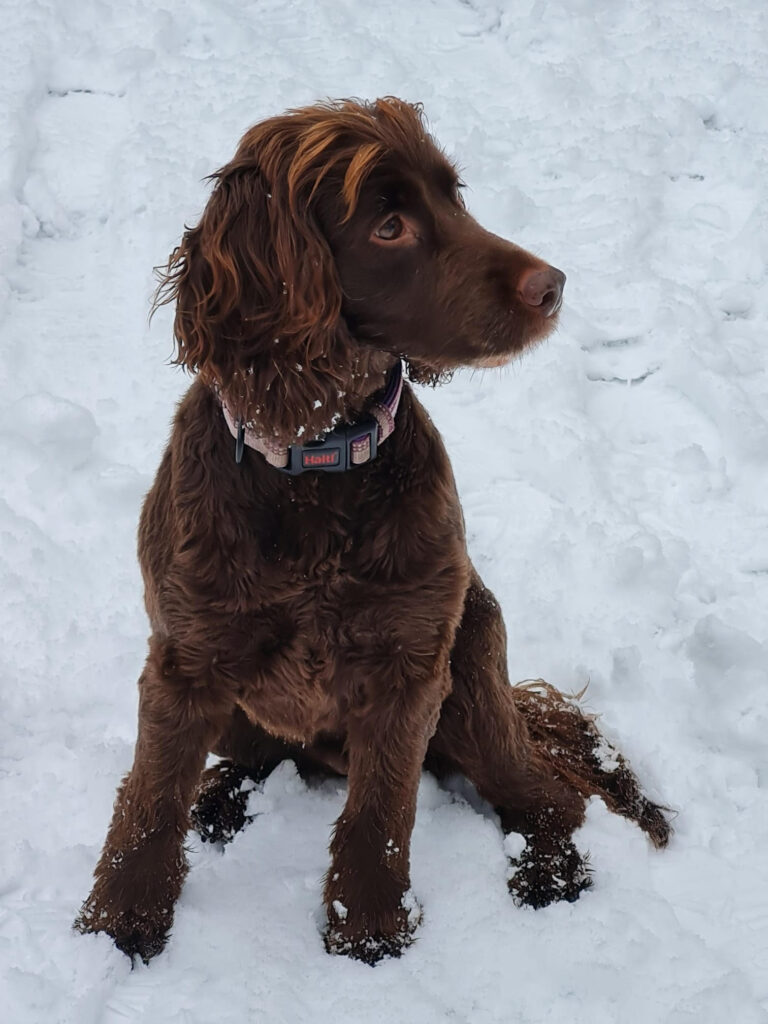Winter Hazards
Now the evenings are darker and the nights are getting colder, there are a few things for us to consider for our furry friends.
Walking in snow and grit – Once temperatures drop, grit spread on roads can be irritating to paws, so clean dogs paws after walks and be mindful if your cat seems bothered by their paws after they have come in from outdoors.
Walking in the dark – Ensure you and your pooch are well visible when walking in the dark. Consider reflective/ light up clothing and lead/collar, always walk towards oncoming traffic and keep your dog on a short lead when alongside the road.
Keeping warm – elderly or thin pets may struggle to keep warm so a coat can be nice to keep them comfortable outside. It is also important to ensure your cats (and dogs) microchips are up to date in case they get lost seeking warmth elsewhere.
Antifreeze – is highly toxic to dogs and cats. It is really important to store anti-freeze out of their reach and rinse away any spillages. If you know your pet has had access to anti-freeze please contact us immediately. Unfortunately, most of the time we might not be aware of anti-freeze ingestion but the initial signs can include vomiting, wobbliness and weakness.
Small Furries – Rabbits and Guinea Pigs in outside hutches need to be kept warm. Provide extra bedding, insulate hutches whilst making sure they remain well ventilated or bring them inside.
Stressors. The festive season can cause pets stress due to unfamiliar routine or visitors. Ensure they have a quiet area to retreat to if there is too much activity for them and consider using pheromone diffusers or nutraceuticals to ease anxiety
If you have any questions or would like further advise please contact us on 01606 880890 or 01606 717969

